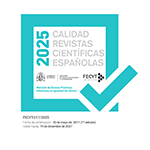Derechos lingüísticos como derechos humanos
Resumen
En los últimos sesenta años, hemos sido testigos del creciente desarrollo y de la articulación de los derechos humanos, en especial en el seno del derecho internacional y a través de las organizaciones internacionales. Sin embargo, en ese periodo, el derecho a mantener una o varias lenguas propias sin discriminación permanece particularmente relegado y/o cuestionado como un derecho humano clave. Esto se debe principalmente a que el reconocimiento de los derechos lingüísticos presupone el reconocimiento de la importancia de un grupo amplio de miembros y contextos sociales —concepciones éstas que chocan ostensiblemente con la primacía de los derechos individuales en la era posterior a la Segunda Guerra Mundial—. Este artículo explora los argumentos a favor y en contra de los derechos lingüísticos, en particular de grupos minoritarios en Europa, y sostiene que los derechos lingüísticos pueden y deben ser reconocidos como un importante derecho humano. De este modo, el artículo se basa en los debates ideológicos de teoría política y derecho internacional, así como en el importante ejemplo empírico de Cataluña.Descargas
Descarga artículo
Licencia
La Revista de Antropología Social, para fomentar el intercambio global del conocimiento, facilita el acceso sin restricciones a sus contenidos desde el momento de su publicación en la presente edición electrónica, y por eso es una revista de acceso abierto. Los originales publicados en esta revista son propiedad de la Universidad Complutense de Madrid y es obligatorio citar su procedencia en cualquier reproducción total o parcial. Todos los contenidos se distribuyen bajo una licencia de uso y distribución Creative Commons Reconocimiento 4.0 (CC BY 4.0). Esta circunstancia ha de hacerse constar expresamente de esta forma cuando sea necesario. Puede consultar la versión informativa y el texto legal de la licencia.












